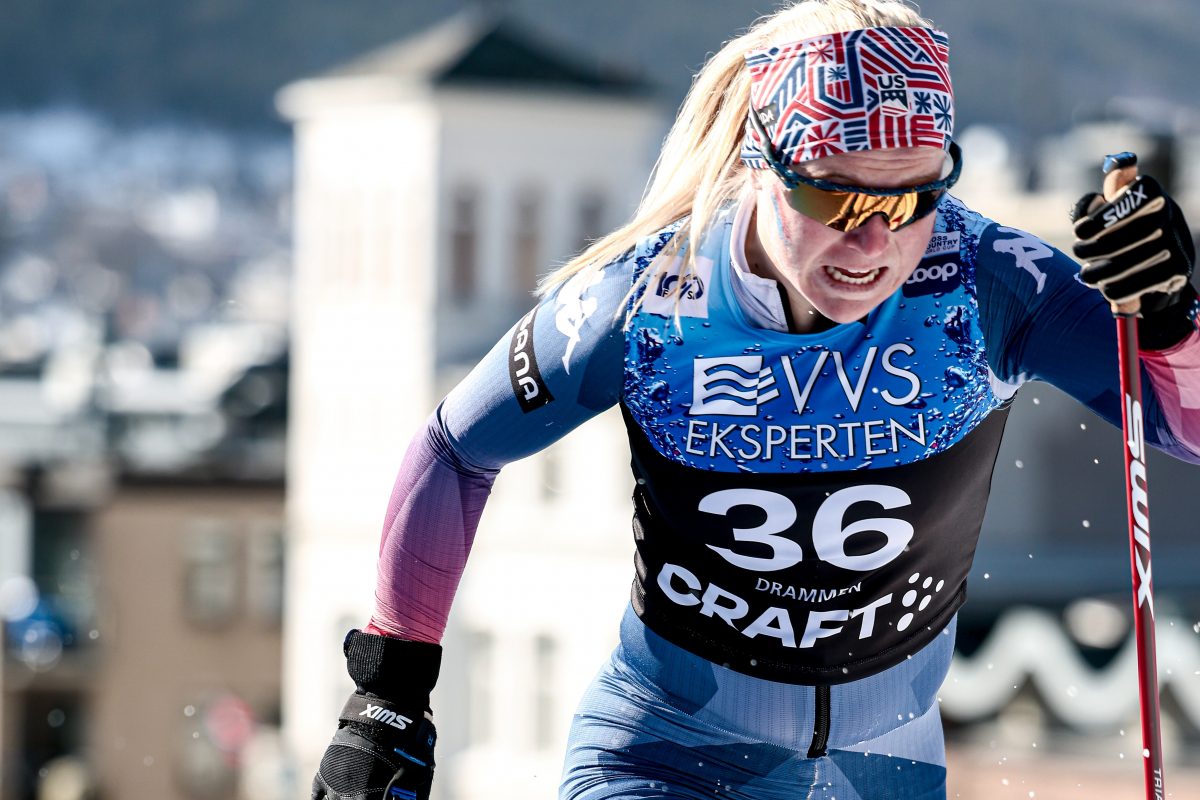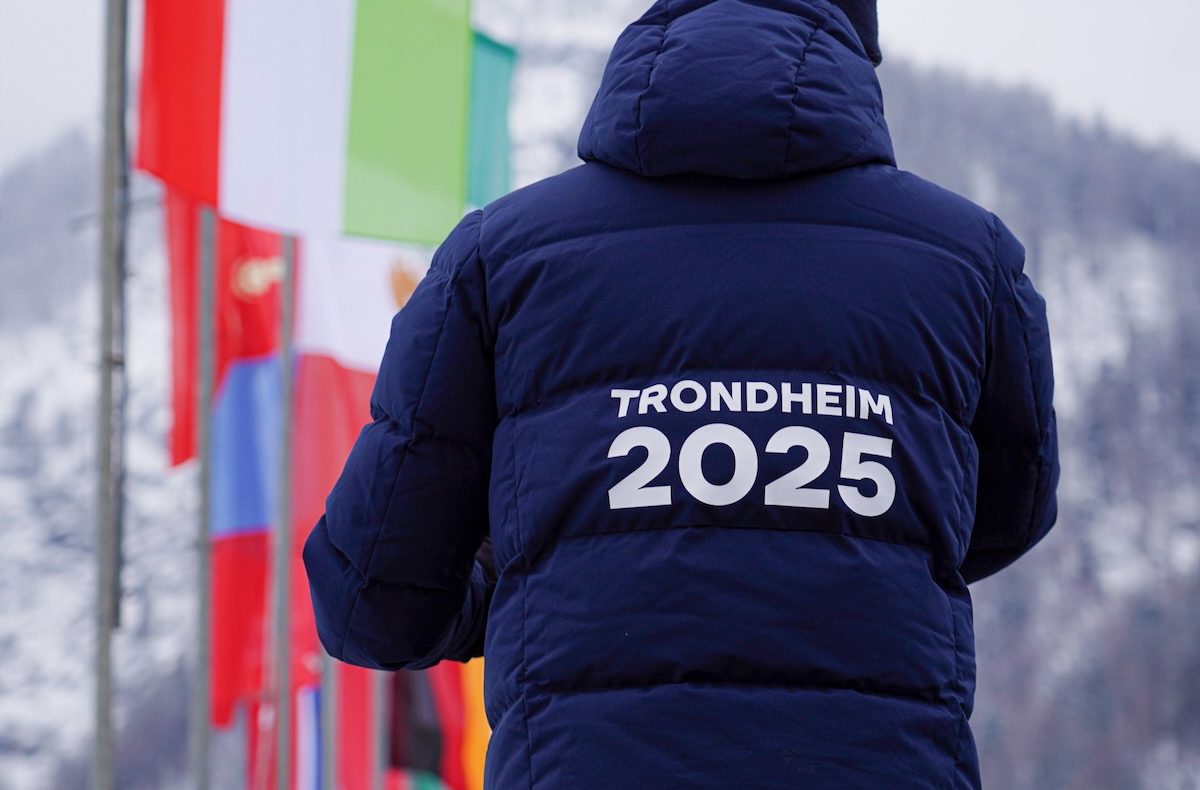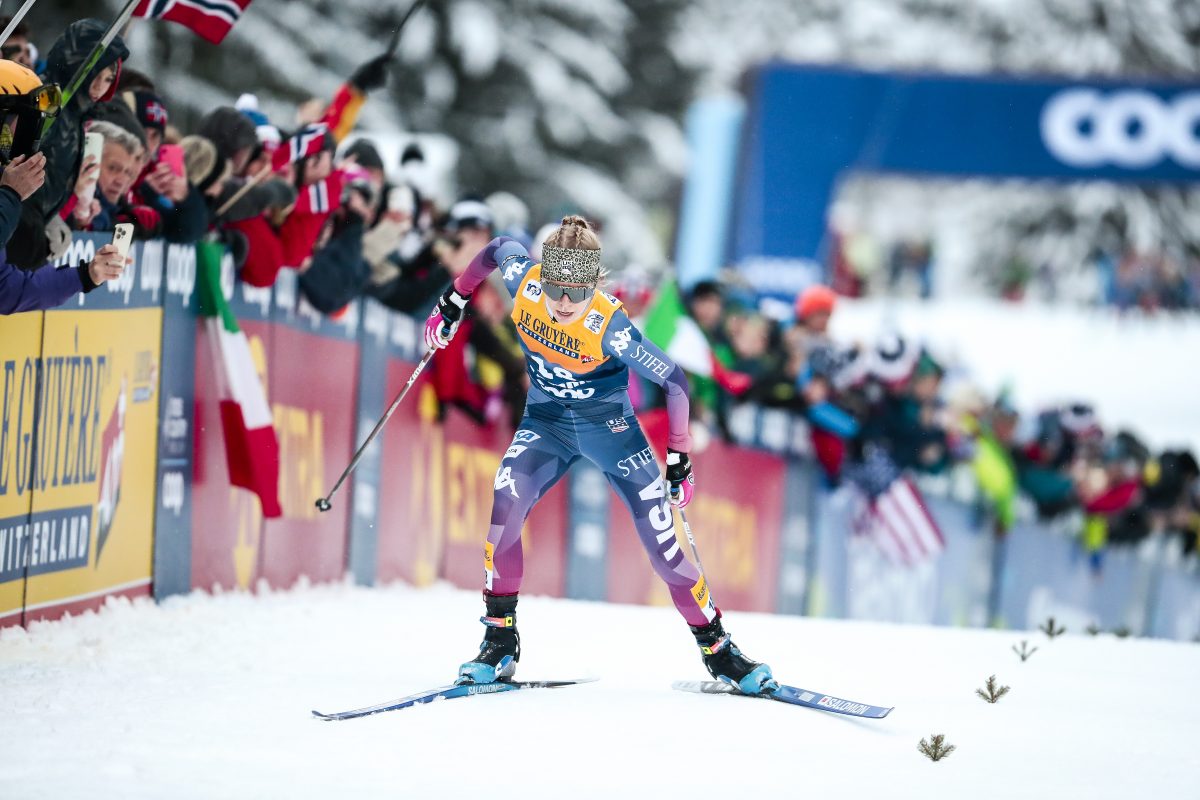
Marit Bjørgen (NOR) doesn’t enter many races as an underdog, but with the way Justyna Kowalczyk (POL) advanced through the early heats in the classic sprint in Lahti, Finland, the Norwegian was just one more woman in the final trying to avoid being embarrassed.
Kowalczyk powered away from the field in both the quarter and semi finals, opening up gaps on the first climb that ultimately reached as much as 30 meters. No one could hang, allowing Kowalczyk to ease up at the end, conserving energy, and easily avoiding trouble on the famed 180-degree corner on the descent to the stadium.
The final, however, was very much a different story. Kowalczyk attacked out of the start yet again, but in an early sign that the competition would not roll over, Russian Julia Ivanova pulled alongside, and Bjørgen locked in on the Pole’s tails.
With a lengthy and steep climb out of the start, and a second significant pitch, both with sections of herringbone, both the men’s and women’s races did follow the standard sprint script. Heats spread out quickly, and in almost every group there were several skiers who could not manage the pace.
Add in two fast technical descents with icy corners, and the course can appropriately be termed unforgiving.
As Kowalczyk hammered over the top of the first of those climbs in the final, she was unable to shake Ivanova and Bjørgen while Maiken Caspersen Falla struggled to maintain contact.
Falla lost touch and barring mishap (which given the number of crashes on the day was no sure thing) the top three were decided, with only the order to be determined.
Over the years, despite multiple World Cup and Tour de Ski titles, Kowalczyk has become renowned for her poor downhill abilities. At this point the label is unfair. Kowalczyk still approaches descents conservatively, but no longer resembles a deer on ice.
The days of losing races on the descents, however, were not over. Kowalczyk swung wide, playing it safe on the first downhill corner, and Bjørgen and Ivanova moved past, immediately opening a lead into the last climb.
For all her strength climbing in the classic technique, Kowalczyk could not close the gap.
Ivanova led into the hairpin, but took an outside line, allowing Bjørgen to slip through on the inside.
At that point the race was over. With the fate of the overall World Cup trophy hanging in balance over these last weeks, Bjørgen would not be giving up a lead on the final stretch.

Ivanova battled gamely, and was plenty pleased with the first World Cup podium of her career.
“It is my first individual World Cup podium and I am for sure very, very satisfied,” Ivanova said after the race. “I had a really good day and was able to fight hard for the podium.”
The Russian has been skiing especially well of late, placing 6th in Saturday’s skiathlon after taking 12th in the 10k classic in Poland. In 30 career World Cup sprint starts, Ivanova had only advanced to the semis twice prior to today.
Kowalczyk crossed safely in third, dropping an additional 40 points to Bjørgen in the overall.
“Yesterday I had not a good day but today I was able to forget everything and restart,” Kowalczyk said. “It was a tough race—the course is very hard especially in the downhill where it was icy. I am very satisfied to finish on the podium today and looking forward to the next races.”
Bjørgen, who placed second to teammate Therese Johaug in the skiathlon, now holds a 78-point lead on Kowalczyk in the overall standings, while Randall is still well in front in the Sprint Cup standings.
The American reached the finals in a classic sprint for just the second time in her World Cup career, looking very strong in both her quarter and semi.
She used an efficient narrow herringbone run at the tops of the steep hills to open up a gap in both heats, though in the semis, she was already trailing the then-untouchable Kowalczyk.
Randall told FasterSkier that she had excellent skis and that the key was getting over the tops of the hills well.
A strong skier on the descents, Randall also took advantage of the technical nature of the course.
“I was really enjoying them,” Randall said of the downhills and corners. “I had practiced a few rounds during warm-up and could make up time on people…you could tell those who weren’t confident in how it would go and that just opened up an opportunity.”
In the final, Randall said she was a bit fatigued, confirming what appeared evident to observers. Instead of the controlled run on the steep section of the first climb, Randall broke in to a wider, and less efficient herringbone.
“With that hard opening pace right of the bat, I was struggling to keep up and my technique broke down,” Randall said of the final.
She kept her head in the race, and came back on Falla, nearly catching the Norwegian at the line.
“I knew those two were going to go for it,” Randall said of Bjørgen and Kowalczyk. “Ivanova found another gear today and was going hard from get go…I hoped to stay close but couldn’t quite hang.”
Entering the day, with three classic sprints remaining in the season, Randall did exactly what she needed to, advancing to the final, and minimizing any damage.
She widened her cushion on Natalia Matveeva (RUS) who entered the race second in the Sprint Cup, when the Russian failed to advance out of the semis.
And Falla, third sprinter in the world, picked up only five points on Randall.
Another potential threat, though a long shot, Ida Ingemarsdotter (SWE) didn’t even qualify for the heats. Ingemarsdotter had been on a roll, and had beaten Randall in three of the last four sprints.
While both the Sprint Cup and the overall rankings, where Randall sits in fourth, have been a goal all season, she is doing her best to ignore all the talk of points, choosing to take each race as it comes.
With just two sprints remaining, Randall is in solid position with a 138-point lead on Matveeva.
Audrey Mangan contributed reporting.
Topher Sabot
Topher Sabot is the editor of FasterSkier.



